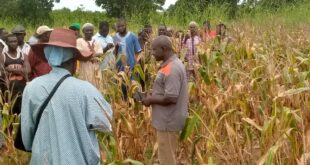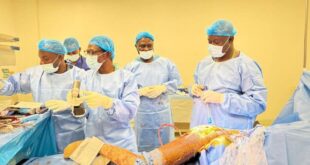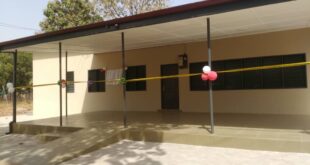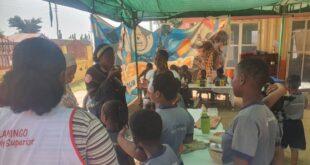Sagnarigu, Ghana – Daniel Kweku Botwe, Ghana’s Minister for Local Government, Decentralisation and Rural Development, has reminded metropolitan, municipal and district assemblies in the country of their constitutionally mandated duty to exercise “political and administrative” authority.
According to him, nongovernmental and civil society organisations operating across the country were required, therefore, to situate their plans and activities in line with the medium term development and annual action plans of the assemblies they were located within.
Quoting section 12 (5) of the Local Governance Act (Act 936) passed into law in 2016 to buttress his point, he said “No NGO, no CSO can go and operate in a district without formulating its programmes and activities to align with the total plans of the district”.
Mr. Botwe said this in a speech he delivered at a forum organized by the National Development Planning Commission (NDPC) in collaboration with the Ministry of Local Government, Decentralisation and Rural Development at Sagnarigu in the Northern Region.
The forum, which was centered on the development of Northern Ghana, was under the theme: “A Policy Thrust: Achieving Equitable and Balanced Development Through Effective Project Delivery in Northern Ghana”.
The forum was organized in line with the objectives of the Gulf of Guinea Northern Regions Social Cohesion (SOCO) project currently being implemented under the support of the Ministry of Local Government, Decentralisation and Rural Development in 48 local assemblies in Northern Ghana as well as the Oti Region.
Among other objectives, the SOCO project seeks to strengthen local institutions and enhance the voices, influence, and ability of vulnerable people including young people to act and play a role in prioritising local development investments and promoting social cohesion and trust in their communities.
The Project also supports the civil and political inclusion of young people, which is critical to channel their energy and aspirations, and create the space for self-expression and to transform potential frustrations into constructive local actions.
The Member of Parliament for Okere also observed that, notwithstanding the various economic and social interventions in Northern Ghana, previously and currently being financed by international organisations such as USAID, UNICEF, AfDB, EU, UNDP, World Bank, CRS, ActionAid, CAMFED, PPAG, and STAR Ghana among others, their impact on the citizenry still left much to be desired.
“I am of the view that the major challenge has been that these interventions are more fragmented, uncoordinated, siloed and not properly tracked to ascertain progress and obtain evidence for policy direction and decision making.”
“…..the previous problems of poor tracking, fragmentation, and poor coordination of interventions of programmes and projects being implemented with funding from Central Governments, development partners, private sector and several NGOs cannot continue,” he stated.
He said going forward, an integrated and a well-coordinated as well as harmonised system would be instituted in collaboration with the NDPC and relevant ministries, departments and agencies as well as Development Partners.
The minister also observed that, the effective and efficient performance of the Regional Coordinating Councils, particularly Regional Planning Coordinating Units, would go a long way in addressing some of the challenges faced by the local assemblies.
“It is therefore my expectation that the Regional Ministers will offer the required leadership and support to the technical wing of the RCCs to routinely monitor the performance of the MMDAs especially, the implementation of the SOCO Project and other ongoing projects to enable Government to achieve the project objectives culminating in improved livelihoods of the citizenry.”
Alhaji Alhassan Shani Saibu, Northern Regional Minister lauded the SOCO project and hoped that it would “spearhead investments in areas such as feeder roads, small earth dams, boreholes, and social infrastructure such as markets, schools with complement of furniture, CHPS Compound and pharmacies which impact directly on improving the lives of our people and enhance local economic development.”
“We also see it as a catalyst to conflict prevention and management. We should acknowledge the efforts that have made been so far in capacity building under the SOCO project. We should work hard to ensure that relevant staff at all level benefit from these trainings,” he added.
The forum brought together regional ministers, metropolitan, municipal and district chief executives, administrators of local assemblies and traditional leaders to discuss issues pertaining the development of their regions and local assemblies.
By SavannahNewsOnline.Com/Kusiele Ziem
 Savannah News Online Reporting Only What Matters Most
Savannah News Online Reporting Only What Matters Most



